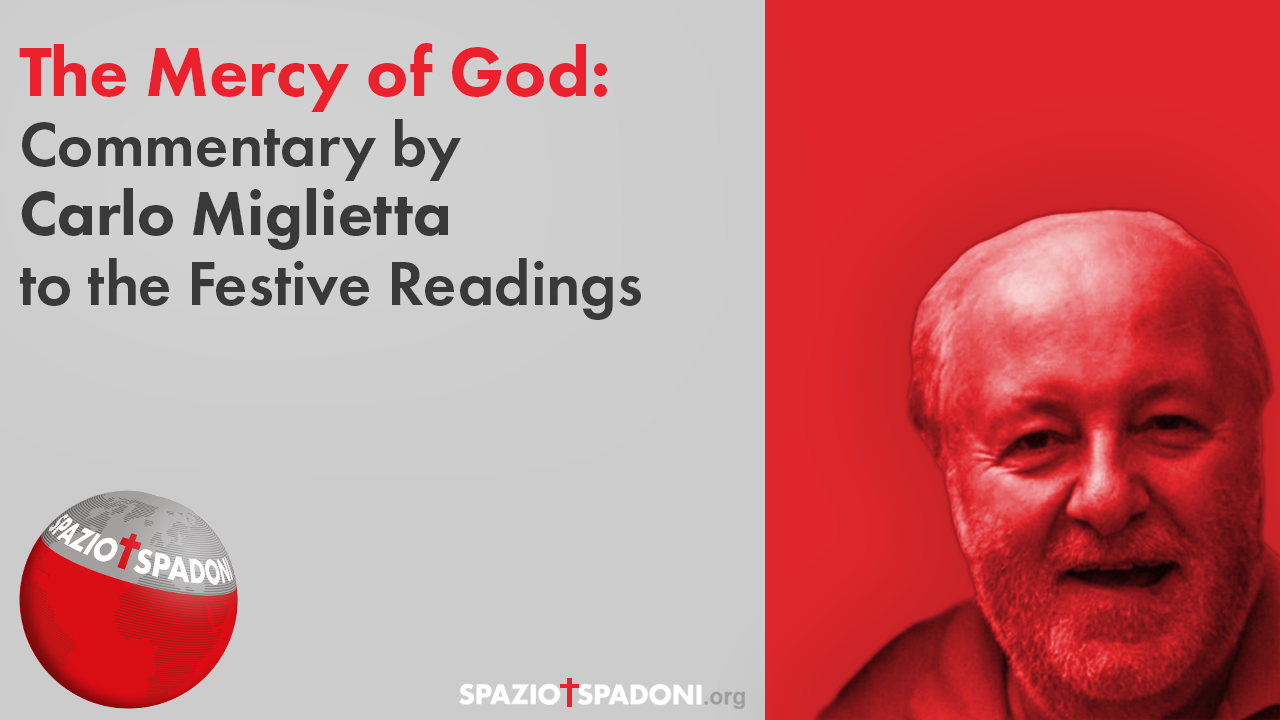
Baptism Of The Lord
Readings: Is 55:1-11; 1 John 5:1-9; Mark 1:7-11
Today’s readings complement the Christmas meditation on the Incarnation by powerfully proclaiming the greatest scandal of all time: God entered human history not in power and glory but in the sign of humility, poverty, and hiddenness.
The Messiah is “the man of sorrows” (Is 53:3)
In the first reading, the Second Isaiah concludes the “Book of Consolation” (Is 40-55) by announcing the “everlasting covenant” through the “witness among the peoples, prince and ruler of the nations” (Is 55:3-4): but in the preceding chapters Isaiah explained to us that the “chosen one” in whom God is pleased (Is 43:1; 49:6) is the “Servant” of IHWH (Is 42:1; 49:3. 6; 52:13), “a man of sorrows who knows well the affliction” (Is 53:3), who “has borne our sufferings, has taken upon himself our sorrows” (Is 53:4), and by whose “wounds we have been healed” (Is 53:5). And here the prophet concludes that our logic is not God’s, our thoughts are not his (Is 55:9).
God becomes man in Jesus of Nazareth
In the second reading, John writes against those who “dissolve Jesus” (1 John 4:3), that is, against those who, reflecting the Gnostic and Docetic heresy beginning in the late first century, deny the humanity of Christ, seeming untoward for a God to suffer and die. John, on the other hand, insists on the reality of the Incarnation, on the complete identification between the divine Christ and the man Jesus of Nazareth (1 John 5:6): the baptismal theophany is inseparable from the death on the cross, which for John is the site of God’s ultimate manifestation.
God stands in line with sinners
In the Gospel (Mk. 1:7-11), Jesus is truly presented as the Suffering Servant of Isaiah; he stands in solidarity with us in everything: God enters history anonymously, hidden among the people, standing in line with sinners waiting for John the Baptist’s baptism! Such solidarity will reach its fullness on the Cross, when Jesus receives true baptism (Mk 10:38), giving his life “as a ransom for many” (Mk 10:45). It is the way of humiliation, emptying, kenosis, leading to exaltation (Phil 2:5-11): Jesus is the “first who will be last of all and servant of all” (Mk 9:35). This logic of God is “scandal to the Jews, foolishness to the Gentiles” (1 Cor 1:23): but it is “for us wisdom, righteousness, sanctification and redemption” (1 Cor 1:30).
A Church incarnate among men
Certainly, such Christology must be matched by an appropriate ethics and a coherent ecclesiology. To fail to understand the meaning of the Incarnation is to maintain a detached attitude before man and history. Instead, recognizing the Incarnation as divine logic means becoming close to every man, aware that faith in the God of Jesus Christ is not intellectual contemplation of the Gnostic type, but agapic praxis, that is, responding to God’s love with love for one’s brothers and sisters (1 Jn. 4:20-21): love for one’s brothers and sisters is the criterion for discerning between those who adhere to Jesus of Nazareth the Christ (Jn. 13:35) and those who “dissolve” him.
Today’s readings are a strong call to the Church not to be ideology, not to be power, but to incarnate itself alongside every man, in every culture, subsuming, following the example of Jesus, their poverty and suffering, in order to bring to them in concreteness signs of the Kingdom of God. I am called to be a Church that lives, like Christ, the mystery of hiddenness, of the last place, of stripping, of emptying, in order to make herself all things to all people; a militant Church, that confesses with strength, and sometimes with suffering, the mystery of faith in the God who dies for us; a Church that is a place of agape, of love, a credible prophecy for the world of the God who is nothing but Agape, Love (1 Jn. 4:8).
